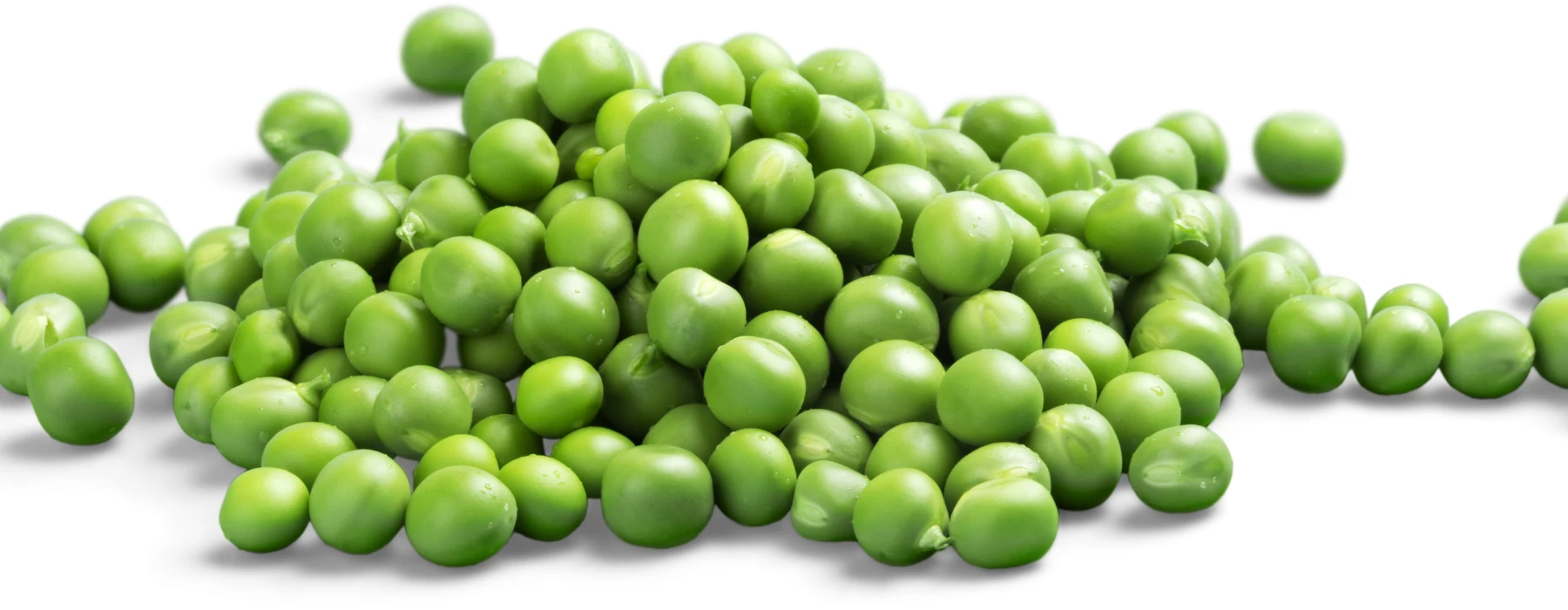
|
Calories |
81 |
|
Fat |
0.4 grams |
|
Carbs |
14 grams |
|
Fiber |
5 grams |
|
Sugar |
6 grams |
|
Protein |
5 grams |
|
Sodium |
5 mg |
|
Potassium |
244 mg |
|
Vitamin C |
66% of RDI |
|
Vitamin B6 |
10% of RDI |
|
Iron |
8% of RDI |
|
Magnesium |
8% of RDI |
In addition with fiber, green peas are an excellent source of plant protein. Protein, in addition with fiber, slows the process of digestion, hence promoting a feeling of fullness for a long time. The unique protein present in green peas makes it ideal for people, who do not consume animal products. However it is not a complete source of protein as it lacks methionine. Sufficient intake of protein is also necessary for muscle strength and bone health. It is also beneficial for weight loss and maintenance.
Several properties make green peas beneficial for blood sugar control. Firstly, it has a low glycemic index, which is helpful in regulating blood sugar levels. Green peas bag significant amounts of protein and fiber, making it a good choice for blood sugar control.
The high fiber content of green peas make it very beneficial for digestive health. The fiber feeds healthy gut bacteria in the intestine, increasing the healthy gut bacteria and preventing the overpopulation of unhealthy bacteria. This reduces the risk of gastrointestinal diseases, including, inflammatory bowel disease, irritable bowel syndrome, and colon cancer. Green peas contain considerable amounts of minerals, including magnesium, potassium, and calcium. All of these are heart healthy minerals. It’s high fiber content, lowers the total cholesterol and “bad” LDL cholesterol. Both are associated with increased risk of heart disease. Green peas are high in antioxidants, including flavonols, carotenoids, and vitamin C. These all have been shown to reduce the likelihood of heart disease and stroke due to their ability to prevent cell damage. The antioxidants present in green peas reduces inflammation in the body, hence may reduce the risk of cancer. A plant compound, saponin present in green peas, is also known for its anti-cancer effects. According to several studies, saponins may help prevent several types of cancer and have potential to inhibit tumor growth.
High fiber and protein content of green peas prevent blood sugar levels from rising too quickly. It helps in keeping diabetes under control. The low glycemic index rank of green peas also makes it a diabetic-friendly food item. Green peas are also a good source of magnesium, vitamin B complex, vitamins K, A and C. All these nutrients help to reduce the risk of diabetes.
Along with several beneficial nutrients, green peas also contain antinutrients. These may interfere with proper digestion and mineral absorption. Although healthy people are not affected by these anti nutrients, malnourished people or those who rely on legumes as a staple food are affected by this. The two most important anti nutrients found in green paes are phytic acid and lectins. Phytic acid interferes the absorption of minerals such as iron, calcium, magnesium, and zinc. Consumption of lectins are associated with symptoms like gas and bloating. They also interfere with nutrient absorption. When compared with other legumes, green peas have lesser amounts of these anti nutrients. So, it's unlikely to create problems, until taken frequently or in large quantities.
Like other legumes, green peas can also cause bloating, swelling of stomach, gas and flatulence. The two main reasons behind this are FODMAP and lectins. FODMAPs are a group of carbohydrates which escape digestion and are fermented in the gut, which produce gas as a byproduct. Although lectins are present in small amounts in green peas, they can cause gastric issues in people who are not healthy or consume green peas in large amounts.